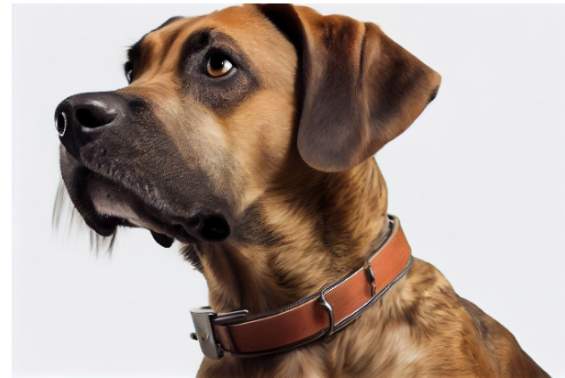Table of Contents
Choosing the right collar for your dog is a crucial decision that goes beyond aesthetics. A collar is not just a fashion statement; it serves various purposes, from identification to training and safety. With a plethora of options available, selecting the right one can be overwhelming. In this guide, we’ll explore types of dog collars and help you make an informed decision based on your dog’s needs and lifestyle.
Flat Collars: The Everyday Essential
Flat collars are the most common and versatile type. They are typically made of nylon or leather and feature a buckle or snap closure. These collars are ideal for attaching ID tags and are suitable for everyday use. Ensure a snug fit without being too tight, allowing room for two fingers to slide comfortably underneath.
Neoprene Dog Collars
The neoprene dog collar is a durable and comfortable accessory designed for active canine companions. Crafted from a synthetic rubber material, neoprene is known for its water-resistant properties, making it an ideal choice for dogs who love water activities. The collar’s soft and padded texture ensures a gentle feel against the dog’s neck, preventing chafing or irritation.
Neoprene dog collars often feature adjustable straps for a customized fit and come in various colors and designs. Whether your pup enjoys a beach day or a rugged hike, the neoprene dog collar combines style, functionality, and durability for the perfect outdoor companion.
Martingale Collars: Ideal for Escaping Artists
Martingale collars are designed to prevent dogs, especially those with slender necks like Greyhounds or Whippets, from slipping out of their collars. Unlike traditional collars, martingales tighten slightly when pulled, providing more control without choking the dog. They are excellent for training and preventing escape artists from slipping away during walks.
Choke Chain Collars: Use with Caution
Choke chain collars are such dog training tools that tighten when pulled. While they can be effective for teaching commands, they should be used with caution and only by experienced trainers. Improper use can cause injury or discomfort to the dog. If considering a choke chain, consult a professional trainer to ensure proper usage.
Prong Collars: Precision in Training
Prong collars, also known as pinch collars, have metal links with prongs that press into the dog’s neck when tension is applied. These collars are often used for training strong, large dogs. Like choke chains, prong collars should only be used by experienced handlers to avoid misuse and injury. Seek guidance from a professional trainer before using a prong collar.
Head Collars: Gentle Control for Energetic Dogs
Head collars, like the Gentle Leader or Halti, fit around the dog’s head and muzzle, providing gentle control over pulling and unwanted behavior. They are excellent for managing strong, energetic dogs during walks. Ensure proper fitting to prevent discomfort, and introduce the head collar gradually, allowing your dog to acclimate to the new sensation.
Harnesses: Comfortable and Secure
Harnesses distribute pressure across the chest and back, offering a secure and comfortable alternative to collars. They are particularly suitable for dogs prone to respiratory issues or those with neck injuries. There are various types of harnesses, including back-clip, front-clip, and no-pull designs. Choose a harness based on your dog’s size, behavior, and walking style.
GPS Collars: Ensuring Safety and Security
In the age of technology, GPS collars have become an invaluable tool for pet owners. These collars allow you to track your dog’s location in real-time, providing an added layer of security. GPS collars are especially useful for dogs that enjoy exploring off-leash or for those prone to escaping. Consider the battery life, range, and features when selecting a GPS collar for your furry friend.
Conclusion
Choosing the right collar for your dog involves considering various factors, including size, breed, behavior, and specific needs. Whether it’s a flat collar for everyday use, a harness for added comfort, or a GPS collar for security, each type serves a unique purpose. Prioritize your dog’s safety and comfort, and when in doubt, seek advice from a professional trainer or veterinarian. Remember, a well-chosen collar contributes not only to your dog’s well-being but also to the bond you share during walks and adventures.
